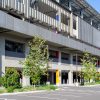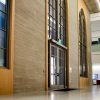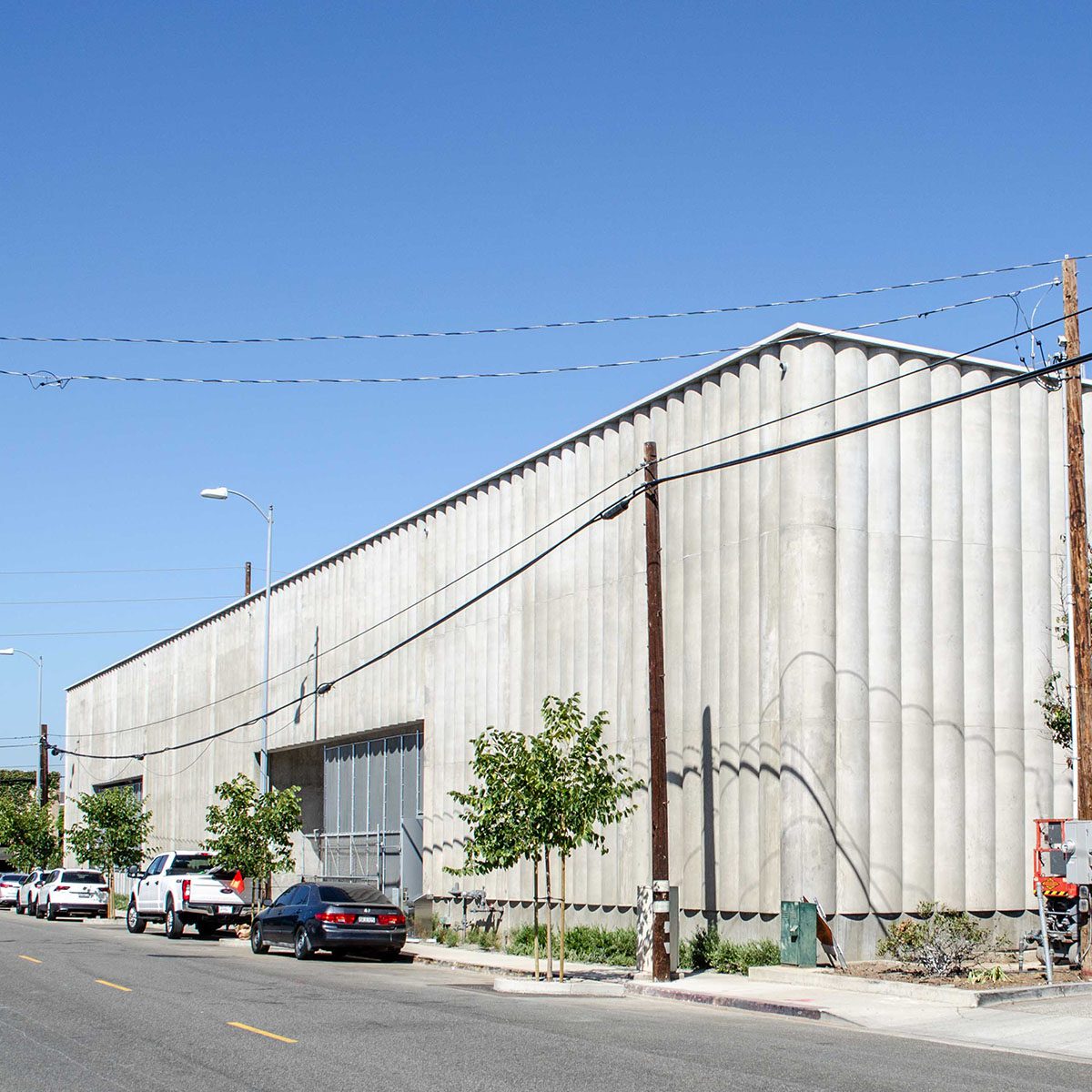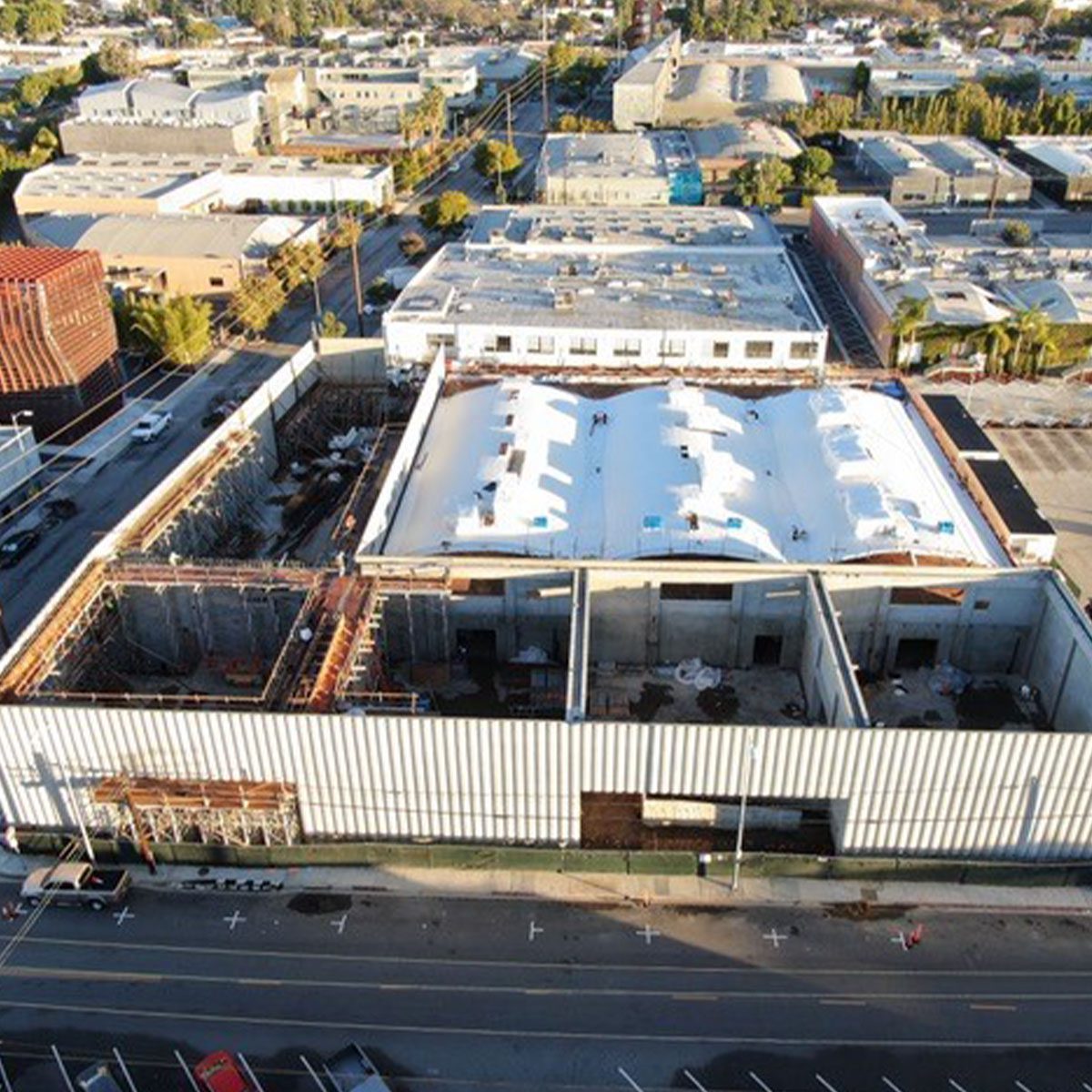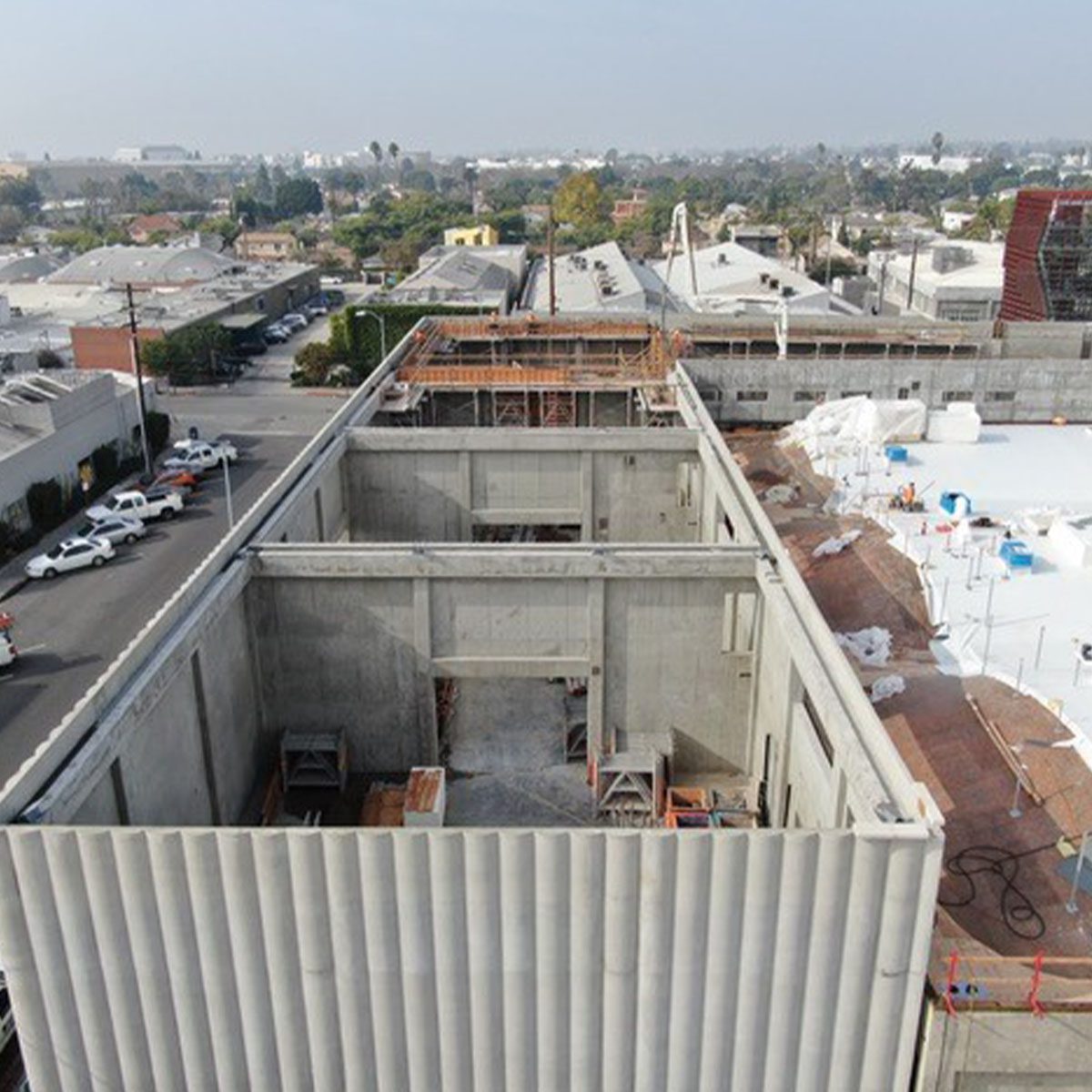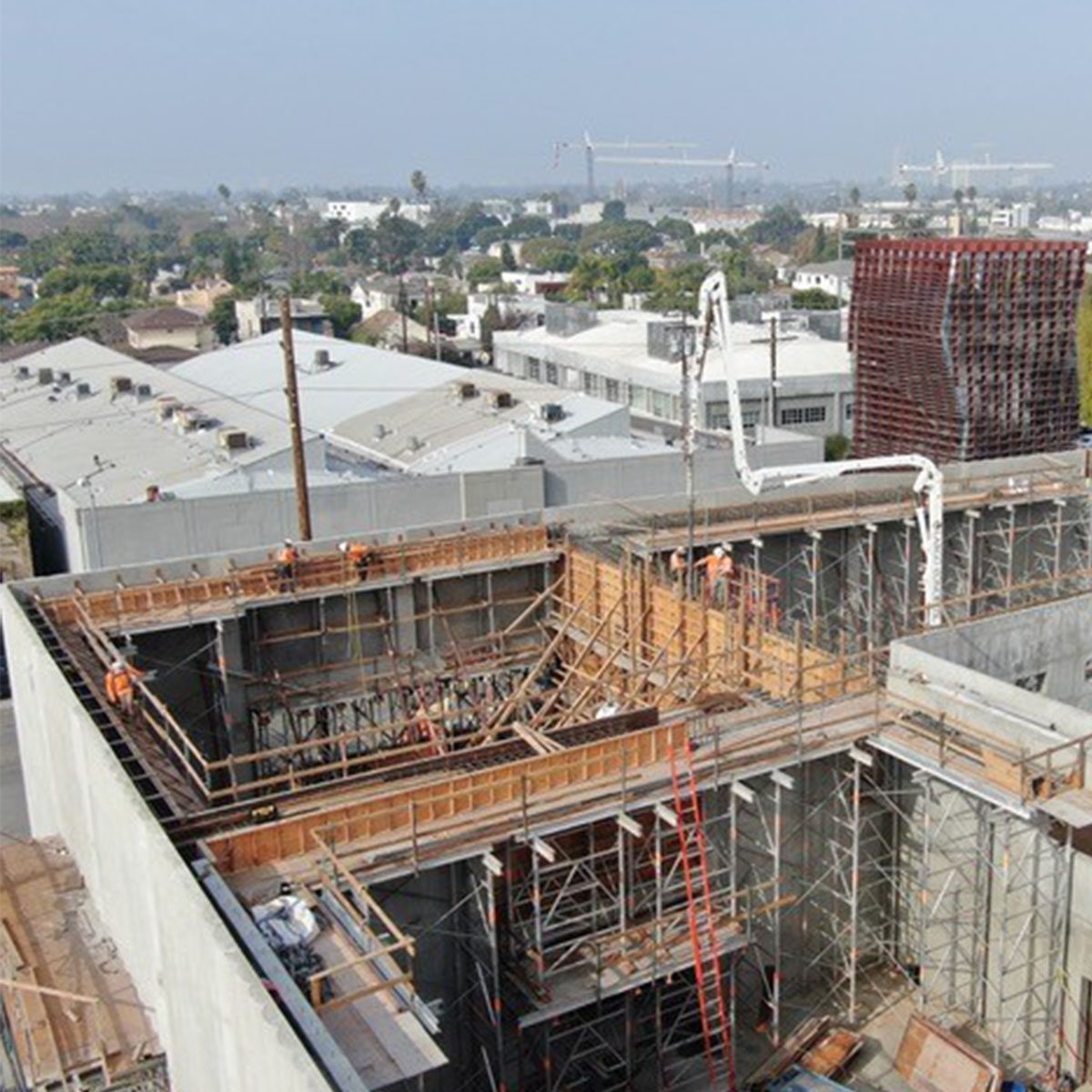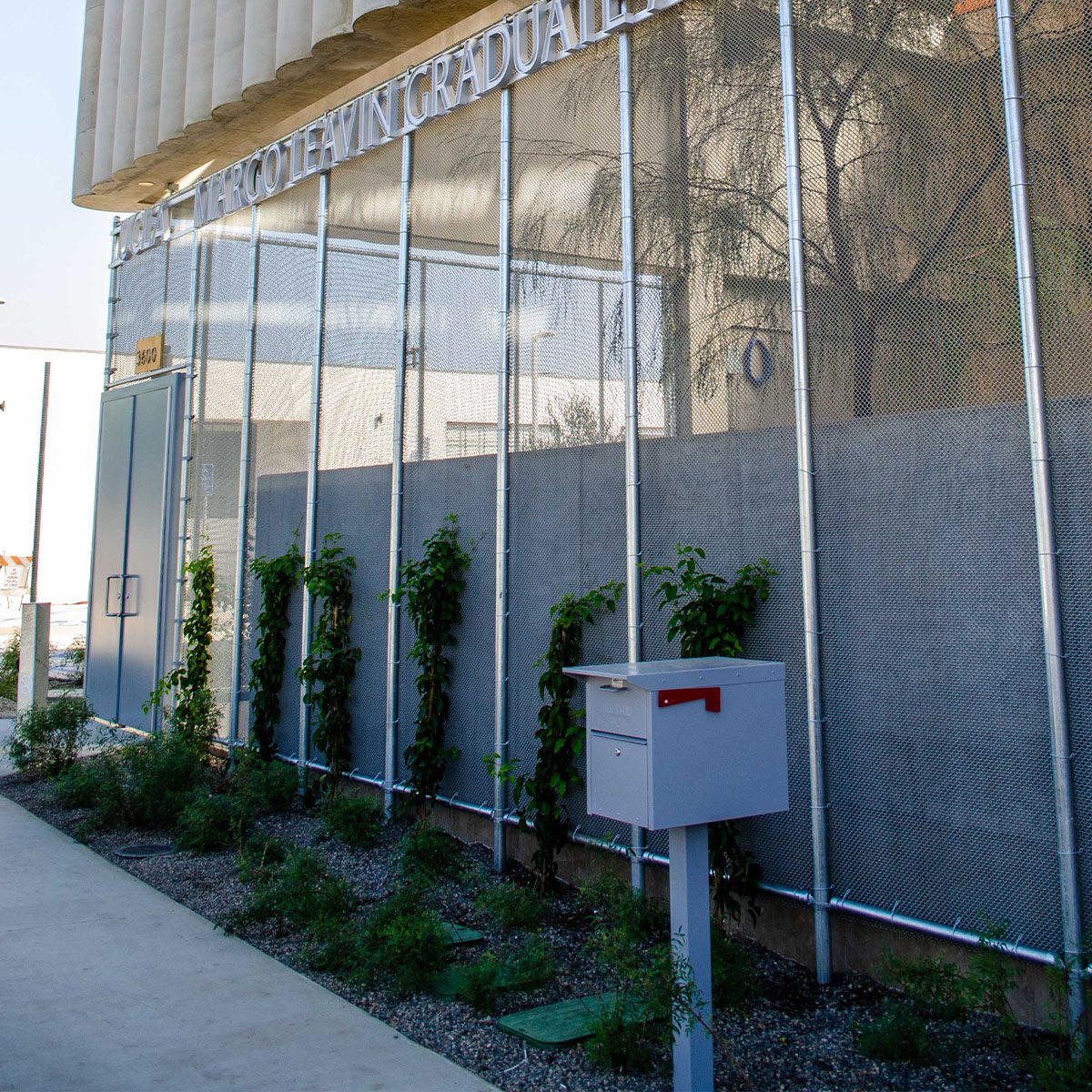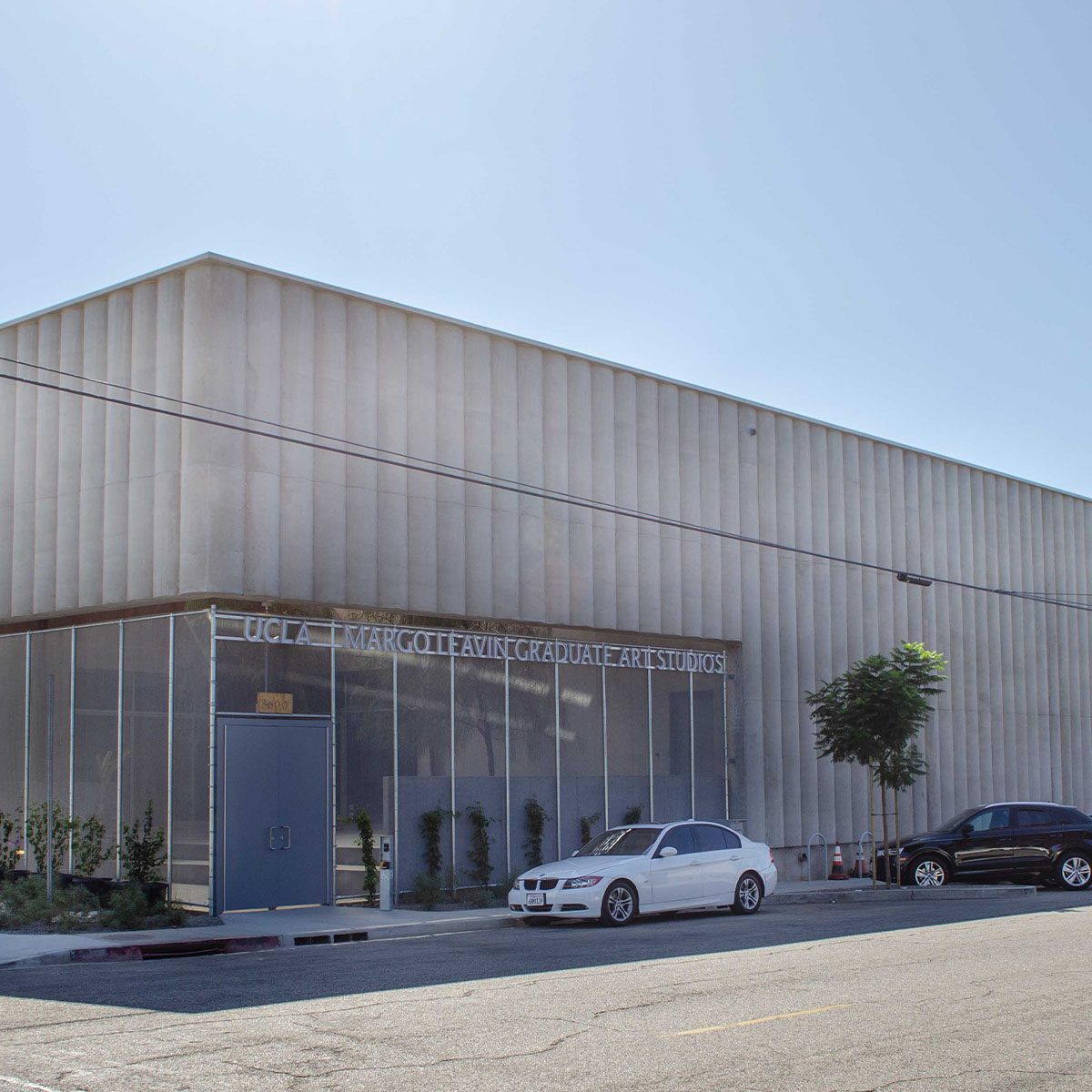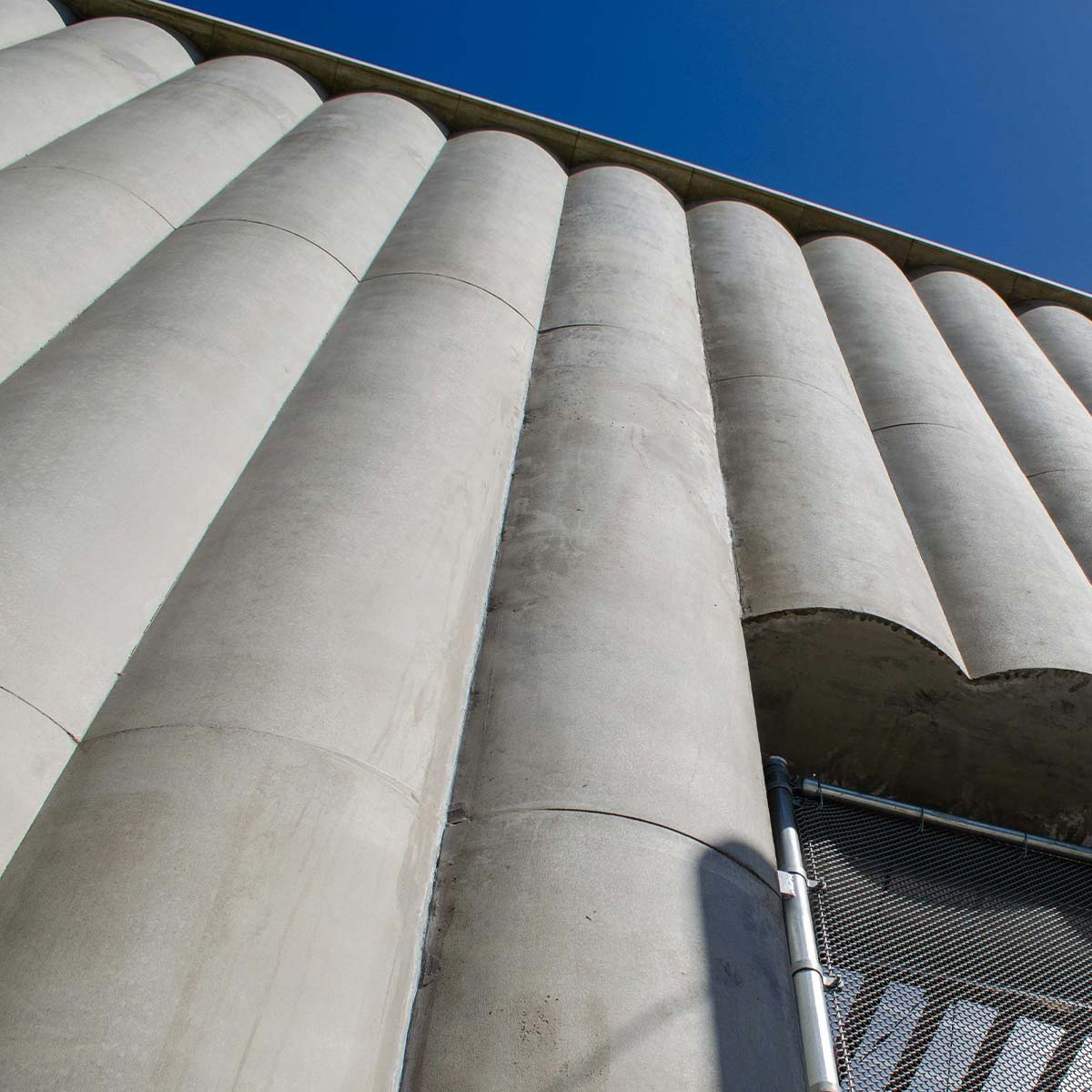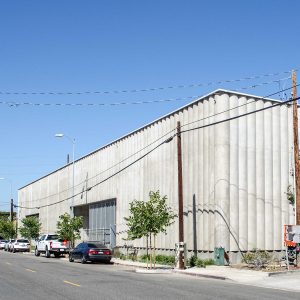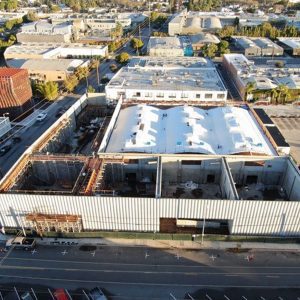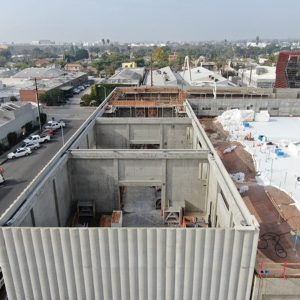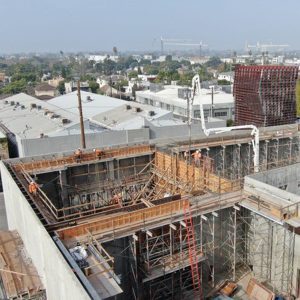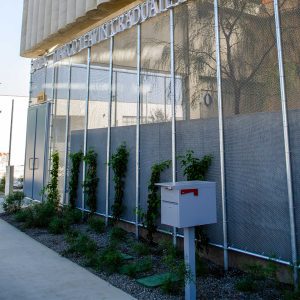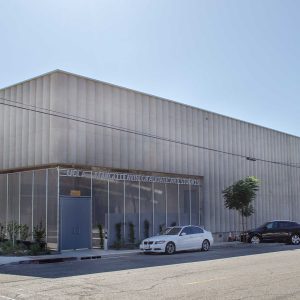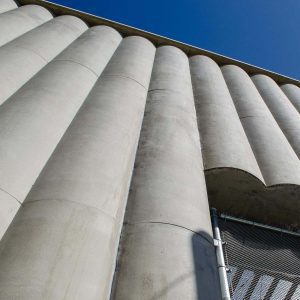UCLA Margo Leavin Art Studio
The UCLA Margo Leavin Art Studio project consisted of a 21,200 sf renovation of the Graduate Art Studios existing building and a 26,800 sf, L-shaped addition to the facility. Designed by architecture firm Johnston Marklee, the building is organized in the fashion of a ‘community’ with small blocks of private studios in a cul-de-sac setting adjacent to communal, plaza like facilities connected by pathways akin to city streets. Specialized lab space for woodworking and ceramics are also included in the facility which is designed to be adaptable to accommodate future new technologies and working methods. The Margo Leavin Art Studio project achieved a LEED Gold Certification.
The construction of this building utilized several different concrete assemblies to support the building and achieve the natural concrete look. This was especially important to the designers and the University to integrate the facility into the former industrial zone known as the Hayden Tract. The exterior walls were designed as concrete tilt-up panels with 2′-0″ “pillows” or half-circles on the exterior face. Special single-use form liners were designed and fabricated out of state to achieve the “pillow” shapes. Cast-in-place stitch columns were used to connect the tilt panels at each grid line. The stitch columns also used the “pillow-shaped” form liner but were exceptionally challenging because they were poured full-height (28′-10″) between the panels and had to line up perfectly with no gaps or visible seams. Largo’s in-house engineering team designed custom falsework to support lintel panels which would eventually be suspended 15’-0” in the air. These panels also feature the “pillowed” exterior finish and are unsupported from below as they span the openings to the building.
The interior frame of the building consists of cast-in-place walls, columns and ring beams, all exposed with an “as-cast” finish. Shotcrete walls and beams were installed against the existing building walls on two sides to connect the new construction to the existing building. As was the case with the exterior finish, no sacking or other cosmetic enhancements were allowed on the interior as well. The building’s roof is designed as a grid of vaults with curved glulam beams covered by roofing membrane, curved polycarbonate or nothing at all to allow for natural ventilation in certain spaces.
Limited access to the building pad because of the existing structure made it difficult to form, place and hoist the tilt-up panels. The time frame to complete all of the building concrete was eight months. Despite these challenges, the concrete scope of work was completed in eight months with zero safety incidents over 29,213 hours. Some of the potential hazards that were endured included 30’-0” shotcrete walls and beams, 30’-0” shear walls and columns, 30’-0” tilt-up panels and hoisting the panels with a high voltage wire running along one side of the jobsite.

